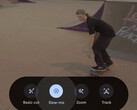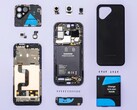Video Boost has now landed on the Pixel 8 Pro (available here at Best Buy) the latest feature drop not only introduces the new Gemini AI in the Nano version to Google's flagship camera, but also an AI feature that was already heavily advertised at the launch in October. For this, users have to upload their videos to Google's cloud, as the feature does not work on the device. Another very artificial restriction is that Google's non-pro Pixel 8 does not get Video Boost.
Google promised to significantly improve videos in low light in particular and demonstrated this in an impressive Tokyo-at-night video. Daylight recordings, on the other hand, seem to benefit little from post-processing by Google's AI, as the first short sample video from Techdroider shows. Some commentators on X (formerly Twitter) are even of the opinion that the original (left) looks better. In any case, boosting videos done in daylight is unlikely to bring much improvement.
Google Pixel 8 Pro - Video Boost
— TechDroider (@techdroider) December 6, 2023
"Video Boost on Pixel 8 Pro uploads your videos to the cloud where our computational photography models adjust color, lighting, stabilization and graininess." pic.twitter.com/2Odn2cQHot
Timelapse recording at night benefits from video boost
There are also those who prefer the unedited version of the following timelapse video, but Google's artificial intelligence nonetheless seems to deliver the promised boost here, especially in terms of brightness. Less nice is the fact that the night sky is consequently very bright, but the night modes of most smartphones also have this problem, such as Night Sight from Google.
Pixel 8 / Pixel 8 Pro - Night Sight in Timelapse pic.twitter.com/bfEwFr5hYt
— TechDroider (@techdroider) December 6, 2023
Video Boost needs some light to work
Youtuber Tim Brown shows the limitations of "Night Sight video editing" in his somewhat longer comparison video below. The approximately three-minute video sequences demonstrate that Google's AI can't do magic either. Wherever the Pixel 8 Pro's camera is unable to capture any light, the edited video is not much brighter either, and jitter effects can sometimes be seen in selective light sources. The short comparison with a DJI Osmo Pocket 3 from 2:16 onwards is also interesting and makes clear that a 1-inch sensor is more effective in dark environments than any subsequent video boost.





























